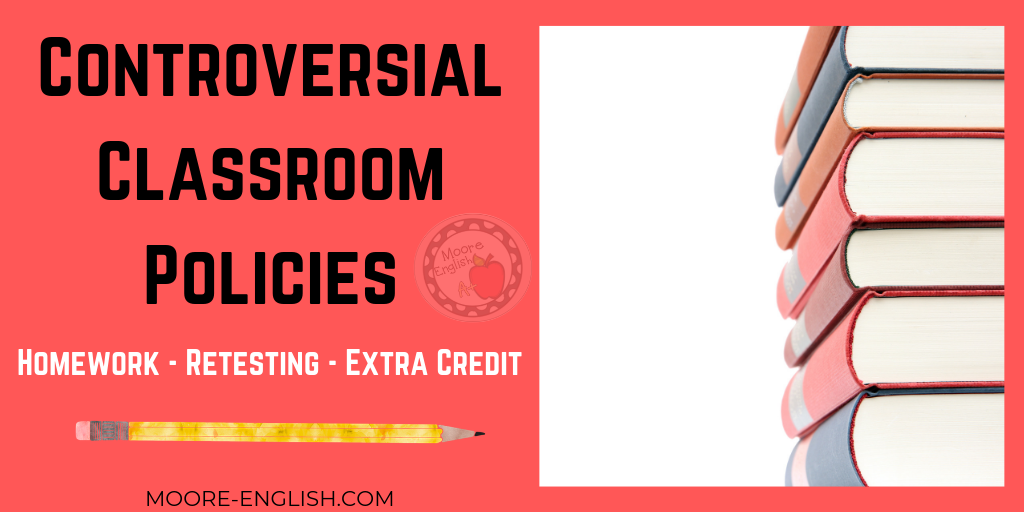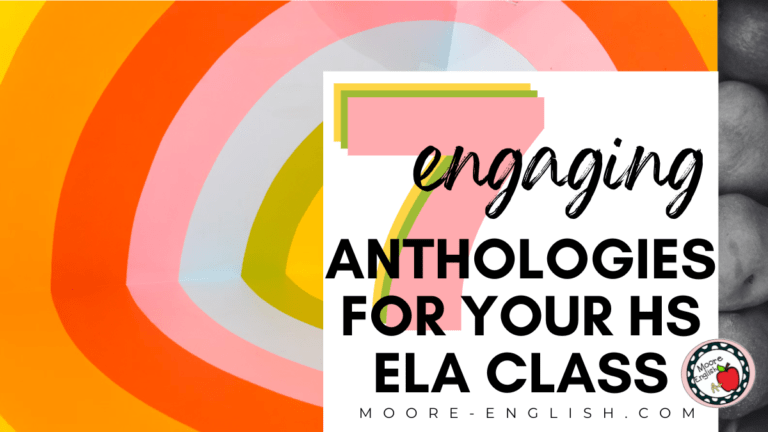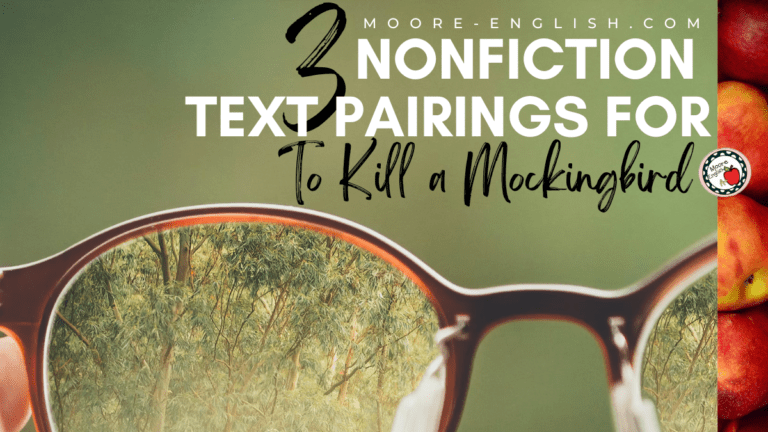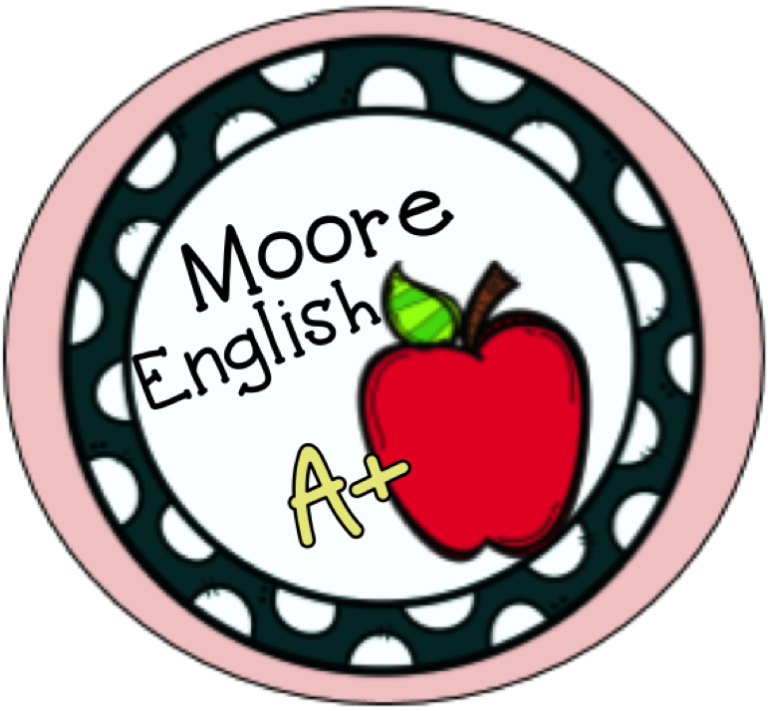Earlier this week, I read two posts that really got me thinking about ~controversies~ in the secondary English classroom. First, I read Room 213’s post about “Theme: is it one word or a statement?“. Then, I read Lauren Randazzo’s post about “Consistency in the English Department.” Each of these articles sparked an instant, visceral reaction from me. And I imagine other teachers had similarly strong reactions. So I started to think about what other controversies we deal with in ELA.
This post this post may contain affiliate links. Please read the Terms of Use.
Let me preface this by saying that some decisions are governed by department, building, or district policies (for more on that tension, see Lauren’s article). However, if these decisions belong to you and your team, here are some factors to consider:
Timeline: When it comes to retesting and extra credit, these are matters of procedure and policy, which most secondary teachers set out in their syllabus. For most teachers, this is a Day One document. This means that you have to make decisions about your retesting, extra credit, and homework policies before school begins.
Consistency and Sustainability: Regardless of what policy you choose, make sure your decision is something you can maintain. For example, my late-work policy used to distinguish between low-point and high-point assignments, but that became too much for me to manage, so it was unsustainable. You should be able to explain your retest policy in one breath. And you should be able to explain that policy in terms students, parents, and other teachers or administrators can understand. Similarly, whatever policy you choose should be something you can maintain. In other words, you have to be able to live with your choices. What will work for both you and your students?
Supportive: As you decide, focus on how your policies will support student learning. For example, punitive homework policies can undermine student learning. For this reason, when you are developing your homework policy, consider your learners. What are your students’ strengths? What kind of resources (Internet access, time, etc.) do they have at home?
Similarly, when developing a retesting policy, consider how retesting can support student learning. A generous retesting policy can signal to students that you support them. But a retesting policy should not put all the work squarely on your shoulders. This article from ASCD suggests that students request to retest. In the English classroom, projects and process papers often better lend themselves to revision rather than a true retest. In these cases, requiring students to visit a writing lab, come in before/after school, or to do an additional round of peer editing can be positive ways to encourage students to grow without requiring you to regrade an entire essay. The same principles also apply to extra credit policies.

I have a confession: I use (or have used) Wikipedia and Sparknotes. I also use Crash Course, and I still have some of those good old yellow and black Cliff Notes pamphlets.
And sometimes I also encourage my students to use these resources.
But the key word here is “resources.” Each of these tools can be a starting place for inquiry, but none of them should be the final part of academic exploration. For example, when my students are researching, Wikipedia can provide a quick brief on a topic. This gives them the information they need to craft meaningful search terms. Sometimes the links at the bottom also can point students to credible, reliable sources. However, Wikipedia is not a credible source for research, and that’s something I emphasize with my students. For more resources for teaching research, click here.
Similarly, Sparknotes and Cliff Notes can help students with plot and character details. But these sources often lack the depth students need to succeed in the classroom. For this reason, write high-level questions ( or use task cards for plot and characterization) that push students beyond recall or comprehension. Better yet, have students write the questions themselves!
Finally, there’s EasyBib and Citation Machine. Sometimes these websites get the citations right, but sometimes, they get something wrong. In fact, even our library’s databases sometimes miss part of a citation. In this case, the important thing for teachers and students to remember is that citation is a skill that focuses on such small details that students have to practice regularly. For this reason, when my students write, the first thing they submit is a rough draft Works Cited or annotated bibliography using this checklist. This means students don’t have much of a chance to dig into EasyBib. And it means that I can catch their citation errors early on. Like Wikipedia, these can be places to begin the process of citation, but they have to be double checked–either by the teacher or against a credible style guide.
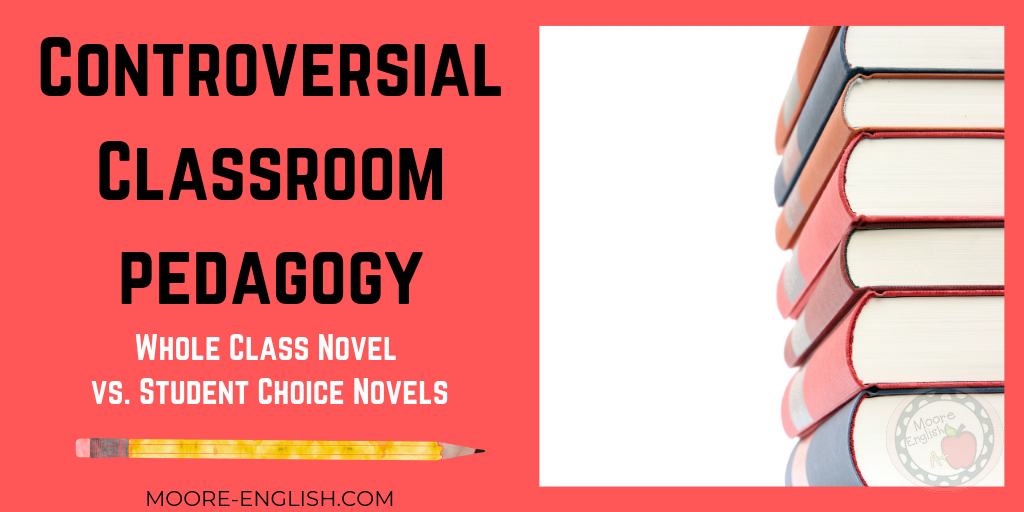
In my department, one of our most-frequent controversies is the discussion about the value of a class novel study vs. the value of literature circles or individual student choice novels. As with most things, this issue comes down to knowing your students, your content, and how to balance the needs of each.
Knowing Your Students: When it comes to determining whether to read as a class or whether each student reads individually, knowing your students is essential. This allows you to make meaningful book recommendations and to differentiate for students. It also allows you to know when you have a class that can’t handle independent reading time.
As a new teacher, my classroom management was not stellar, so I could not get my students into a routine that allowed us to all read independently. You know what? Six years later, I have the classroom management in place to create an environment in which students can successfully read independently. Learning how to make curricular decisions that achieve your classroom’s desired results and standards while also allowing you to meet the needs of your students is a skill teachers work on for their entire careers. Determining how and what students will read is part of that process.
Knowing Your Content: In addition to knowing your students, you must also know your content. Some texts lend themselves to particular standards. To Kill a Mockingbird is a great text for point of view, characterization, historical context, and structure. For this reason, I teach this as a whole-class novel. Similarly, whole-class novels can be great opportunities for working on discussion skills and building classroom relationships. I know my content, so I know when and where to make the decision to use a whole-class novel vs. when to choose independent, choice reading. For example, when it comes time to work on formal presentation skills, doing a Book Talk about choice novels is a great way for students to show off their individual reading while also working on speaking skills. Check out my favorite novel units:
Knowing Balance: This is a difficult thing to learn. But it’s essential that we balance the needs of our learners against the demands of our curriculum. That’s the nature of education. So as you dig through these ~controversial~ issues, keep that in mind. Your goal is to teach students and to help them grow. Make choices that support that goal. Sometimes those choices will be seen as “safe” and “quaint.” Other times they will be “bold” and “innovative.” And there is no shame in each set of choices. Trust that you know the needs of your learners, and trust that even if you try something and it doesn’t go off perfectly, then you still know that you made an attempt to create a better learning environment for your students. Like your students, you are continually growing and improving, and making pedagogical choices is part of that process.
What other controversies would you like Moore English to discuss? Let us know in the comments below.



